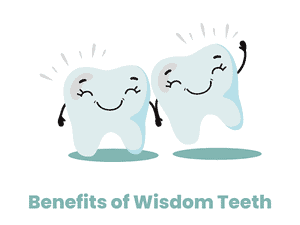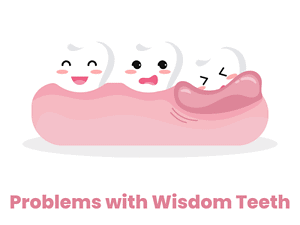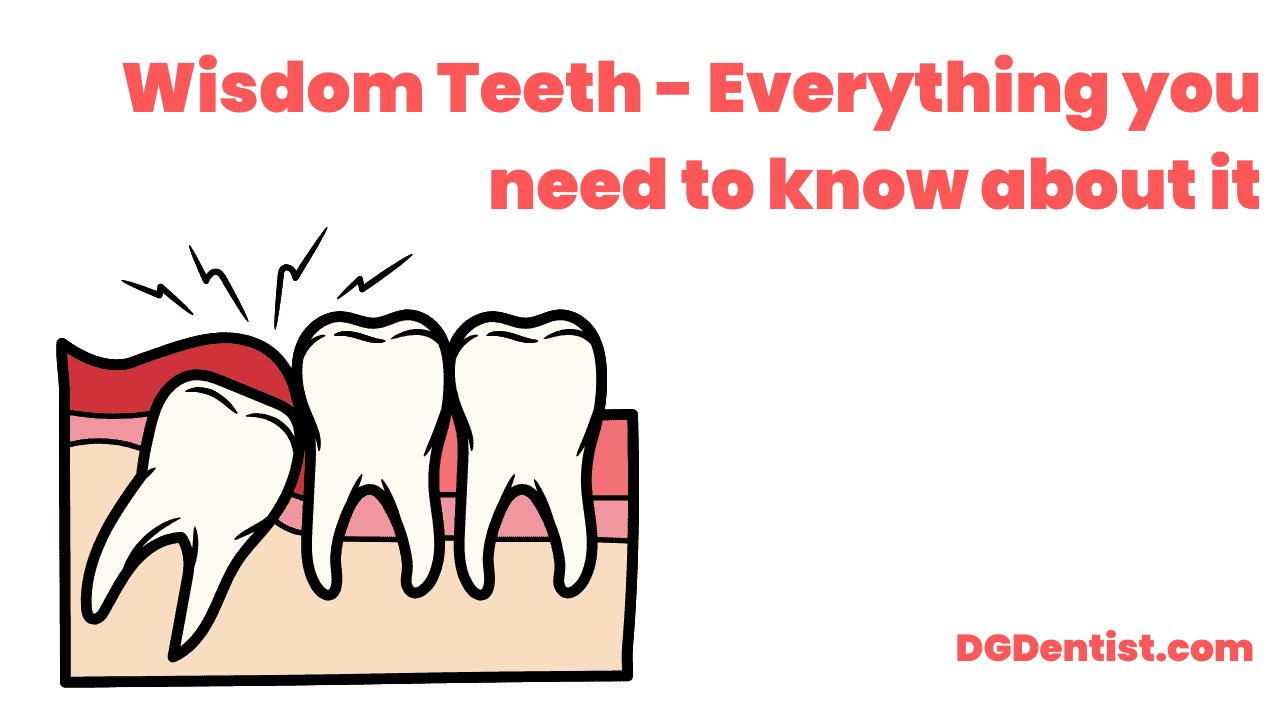Wisdom teeth are the most posterior and last teeth to erupt in our mouth, and it is medically known as the “Third Molars.” Unlike the other two sets of molars, i.e., the First and Second molars, The third molars come at a very late age. Earlier People assumed wisdom teeth erupt when a person attains wisdom in their life, which is why it is named the “wisdom tooth.”
The wisdom teeth are identical to the other two molar teeth, but it erupts around 17-25 years of age. These teeth serve no purpose in our mouth, and that’s why most dentists prefer to extract them even if it causes slight discomfort. But once, it was an important part of our mouth and essential for humans.
Importance of Wisdom Teeth
When humans were not muchly civilized, we ate coarse, raw, and hard food, which were hard to grind with our two sets of molars, and at that time, These strong and large Wisdom teeth helped us chew it. With time, eating habits are drastically changed, and the food we intake is much softer and more accessible to chew when compared with the past, due to which the third Molars are no longer required. Many dentists consider the Third Molars to be vestigial.

Benefits of Wisdom Teeth
A wisdom tooth is beneficial only if the other molar teeth are absent. In the absence of other Molars, Wisdom teeth replace their functions of them such as:
- Helps in chewing food
- Benefits as a support or abutment for a denture
You can refer to this article to learn about the benefits of wisdom teeth.

Problems with Wisdom Teeth
As the use of wisdom teeth is diminished in our mouth, it has become a hub of issues, thanks to the shrinking jaws in humans. It leads to:
- Impaction
- Infection
- Crowding of teeth
- Tooth Abscess
- Jaw Pain
- Pericoronitis (Infection in Gum)
- Tooth Resorption
- Tooth Decay
An unerupted or partially erupted wisdom tooth causes all these issues in our mouth.
Why do Dentists insist on removing wisdom teeth?
Dentists don’t insist on removing a fully erupted wisdom tooth that does not affect other teeth, but in most cases, it erupts partially and causes several issues.
The size of our mouth is also decreasing with time, and due to it, most of us don’t have space for the proper full eruption of the wisdom teeth in the mouth. Due to less space, During the eruption, it pushes the tooth in front of it to make space.
If the wisdom tooth is tilted, It pushes the root of the tooth ahead of it, which causes root resorption along with Jaw pain. The wisdom tooth also irritates the gum, causing inflammation and infection in the gum, which is called pericoronitis.
If not adequately erupted, Wisdom teeth can become a site for infection due to food accumulation. As it is the last tooth in the mouth, It is tough to reach and not appropriately brushed due to which food sticks on it, causing bacterial colonization on it leading to infection.
Due to these reasons, most Dentists don’t advise keeping your wisdom tooth in your mouth.
When to visit a Dentist?
If you are experiencing severe pain in the posterior part of the jaw, it can be a sign of the eruption of a Wisdom tooth. You can experience ulcers and inflammation in the posterior region.
You should visit a Dentist as soon as you feel your wisdom tooth is coming out, as it will help the dentist diagnose any issues and prevent them early.
If your wisdom tooth erupts without interfering with any tooth or your daily mouth functions, you can avoid visiting a Dentist.
FAQ
Why do wisdom teeth cause so many problems?
Wisdom teeth are the most posterior teeth in the mouth, due to which it is tough to reach and cleaning is difficult. Also, Most of us have no space in our mouth for the eruption of the wisdom tooth, which affects other teeth while erupting.
Do everyone has Wisdom teeth?
No, Many of us don’t have a wisdom tooth. In fact, according to research, 5 – 37% of people around the world have a congenitally missing Third Molar tooth.
Why are wisdom teeth so big?
Humans initially used wisdom teeth to grind hard and coarse food, which required a more robust and larger set of teeth. But with time, the size of wisdom teeth is also shrinking.
Do wisdom teeth have a purpose?
The third molar had a purpose in the past to chew hard and coarse food, but it serves no purpose, and that’s why it is considered vestigial in modern times.
What age do wisdom teeth come out?
They usually come out by the age of 17-25 years. It can also erupt in later stages of life or don’t erupt at all.
Are wisdom teeth harder to extract than molars?
The wisdom teeth are the most posterior in the mouth, which makes them difficult to access for surgical procedures. It is usually impacted and firm in the mouth. Any healthy tooth is hard to extract and can lead to various post-operative complications.
Take away
Wisdom teeth are a hub of problems and lead to several infections and pain in the jaw, due to which you should always try to visit a dentist if you experience a new tooth erupting in your mouth.
A full radiographic image (OPG) helps check whether the tooth erupts straight and without affecting other teeth.
Fun Fact: According to this study in 2007, 10 Million wisdom teeth are extracted every year from 5 Million Population of the United States.
References:

